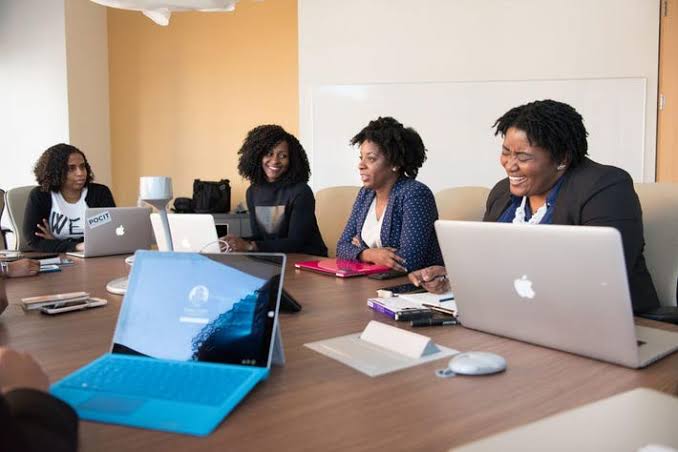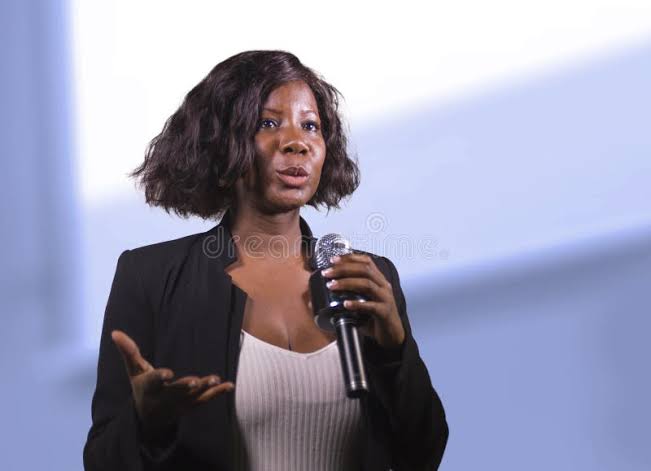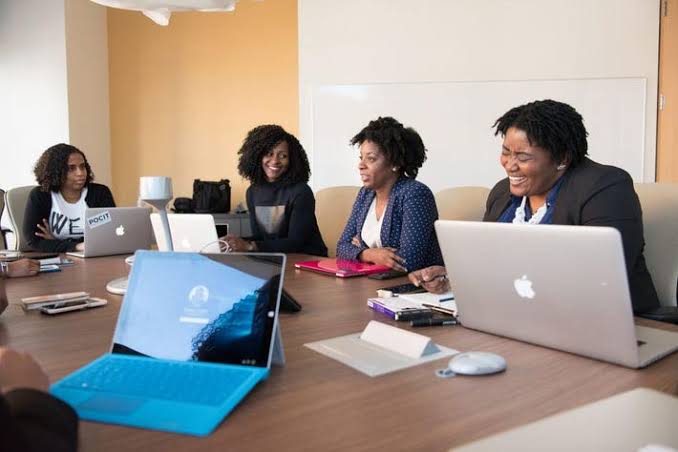Women at the Negotiation Table: The Untold Influence in Africa’s Peace Deals

INTRODUCTION: The Power You Don't Get To See
While African women have consistently played pivotal roles in ending conflicts, their influence is often sidelined in official records and post-war politics. Recognizing their contributions isn’t charity, it’s essential for lasting peace.
Across Africa’s most hard-fought peace deals, women have been on the frontlines of negotiation not always in the literal trenches of battle, but in the painstaking, perilous work of bringing warring sides to the table. They have acted as mediators when official talks broke down, mobilized communities to demand ceasefires, and risked their lives crossing frontlines to carry messages of reconciliation.
Yet, despite this undeniable impact, history tends to frame peace processes as the work of generals, politicians, and foreign diplomats. This erasure is not accidental , it’s the result of deeply entrenched political and cultural systems that see women as supplementary actors rather than central negotiators. The truth is simple: Africa’s peace stories are incomplete without the women who made them possible.
HISTORY’S HIDDEN HANDS
A. Liberia’s Women of Peace
In 2003, as Liberia was gripped by the second civil war, it wasn’t just international pressure that pushed Charles Taylor’s government and rebel factions toward peace, it was a relentless women’s movement. Led by Leymah Gbowee, thousands of women in white gathered daily in the streets of Monrovia, staging silent protests and prayer vigils. These women, Christian and Muslim alike, locked arms across religious and political divides, confronting warlords directly and even staging a dramatic sit-in outside the presidential palace to force negotiations. Their nonviolent campaign not only pressured the warring sides into talks in Accra, Ghana, but also set a global precedent for grassroots-driven peace.
B. Burundi & Kenya
In Burundi, women’s coalitions emerged as the only consistent voices pushing for dialogue during years of ethnic bloodshed. They worked quietly behind the scenes, arranging informal talks between Hutu and Tutsi leaders, often in private homes or neutral spaces where political egos were less inflamed. In Kenya, following the post-election violence of 2007 - 2008, women’s networks bridged communities that politicians had pitted against each other. From village councils to national reconciliation forums, they carried messages of unity, used cultural diplomacy, and challenged hate speech in their own neighborhoods. While official peace agreements rarely credit these women, insiders acknowledge that without them, negotiations would have been far more fragile and possibly failed altogether.
WHY WOMEN NEGOTIATORS CHANGE THE GAME
A. Broader Agendas
When women sit at the negotiation table, the scope of peace agreements often expands beyond simply silencing the guns. Research from UN Women shows that female negotiators are more likely to push for clauses that address the social roots of conflict such as healthcare access, education reform, land rights, and protections for marginalized groups. In Liberia, women ensured that post-war reconstruction plans included trauma counseling for survivors of sexual violence, not just the integration of ex-combatants. In South Sudan, female delegates lobbied for investment in schools and clinics, arguing that peace is meaningless if basic services remain broken. These “non-military” provisions often make the difference between a fragile ceasefire and a durable peace.

Photo Credit: Dreamstime
B. Trust Builders
Women negotiators frequently serve as bridges in deeply divided societies, often enjoying credibility that male political elites lack. Their ties to civil society from market women’s associations to grassroots religious groups give them unique access to communities that may distrust formal political processes.
THE SYSTEM THAT SIDELINES THEM
A. Tokenism in Peace Talks
In many African peace processes, women are invited into the room but only just. Often, they are labeled as “observers” or “advisers,” given no real authority to shape the terms of a ceasefire or political settlement. This tokenistic inclusion allows negotiators to claim the talks are “inclusive” while ensuring that power remains concentrated among male political and military elites. In the 2015 South Sudan negotiations, women made up less than 15% of delegates, and many reported being excluded from key side meetings where the real deals were struck. Their presence was symbolic rather than substantive, reinforcing the perception that peace is the domain of men.
B. Cultural and Political Barriers
Patriarchal norms continue to cast politics and conflict resolution as male arenas, while women are relegated to the sidelines. In some societies, the very idea of women challenging male warlords or presidents is seen as culturally inappropriate, even dangerous. Political gatekeepers whether party leaders, rebel commanders, or government ministers often block women’s entry into negotiating teams, citing “lack of experience” despite decades of grassroots organizing. These barriers are leaving many capable women unable to reach the negotiation table. As a result, the same gender imbalances that fuel exclusion in peacetime are reproduced in the very processes meant to rebuild nations.
PROOF IT WORKS: DATA ON WOMEN AND PEACE
A. UN Studies
The numbers are clear and they cut through the myths. According to United Nations research, peace agreements that include women in meaningful roles are 35% more likely to endure for at least 15 years. This is not a token boost; it’s a measurable shift in the durability of peace. Women’s participation often brings a wider range of priorities to the table, from community reconciliation to economic recovery, creating agreements that address root causes rather than just silencing the guns. In contrast, deals struck without women tend to focus narrowly on power-sharing among armed groups, leaving unresolved tensions that can ignite future conflicts.

Photo Credit: Forbes
B. African Case Studies
Across the continent, there are examples that prove the statistics. In Ethiopia, women played key advisory and leadership roles during the 2018 political reforms, helping to craft policies aimed at ethnic reconciliation and social inclusion. The appointment of Sahle-Work Zewde as the country’s first female president symbolized a broader political shift that boosted public trust in the reform process. In Sudan’s post-Bashir transitional periodomen’s groups successfully lobbied for representation on the Sovereign Council and pushed for laws banning female genital mutilation and child marriage — a reminder that peace-building is about transforming societies, not just ending wars. These cases show that when women’s voices are not just heard but acted upon, peace gains depth, legitimacy, and staying power.
THE GLOBAL AND REGIONAL PUSH
A. UNSCR 1325 & AU’s Women, Peace and Security Agenda
The fight for women’s place at the negotiation table is not just a moral argument, it’s anchored in binding commitments. The United Nations Security Council Resolution 1325, passed in 2000, was a watershed moment, formally recognizing the disproportionate impact of conflict on women and the critical role they play in peacebuilding. It obligates member states to ensure women’s participation at all levels of decision-making in peace processes. Africa has echoed this global mandate through the African Union’s Women, Peace and Security (WPS) Agenda, which urges governments to take action and track progress on gender inclusion in conflict prevention and resolution.
B. ECOWAS, IGAD, SADC Initiatives
Regionally, Africa’s economic and political blocs are beginning to turn commitments into action albeit unevenly. ECOWAS has integrated gender desks into its mediation teams and launched capacity-building programs for female negotiators in West Africa. IGAD has pushed for women’s leadership in Somalia’s reconciliation processes and South Sudan’s peace talks, while SADC has adopted guidelines to ensure gender parity in observer missions and post-conflict reconstruction.
ROADMAP TO FULL INCLUSION
A. Legal Guarantees
Lasting change won’t come from goodwill alone, it requires enforceable rules. Governments and regional bodies must enshrine mandatory quotas for women in all peace negotiation teams, backed by penalties for non-compliance. These quotas should apply not just to symbolic observer roles, but to core decision-making positions such as lead mediators, chief negotiators, and technical experts. Legal mandates could also require that peace agreements undergo a gender impact review before ratification, ensuring women’s priorities are not erased in final drafts.
B. Grassroots-to-Table Pipelines
The women best equipped to shape durable peace are often those who have navigated conflict at the community level yet they rarely make it to national or international negotiation rooms. Building grassroots-to-table pipelines means investing in local women leaders, training them in mediation, negotiation strategy, and political advocacy, and connecting them with regional and global networks. Civil society organizations can play a critical bridging role, helping grassroots activists gain visibility and credibility in formal peace structures.
CONCLUSION: Peace Without Women Is Half A Deal
Women are not just participants in peace processes; they are often the unseen anchors that keep agreements from collapsing. From Liberia’s grassroots marches to Sudan’s transitional negotiations, their contributions have repeatedly proven that inclusive peace is stronger peace. Yet, too often, their presence is treated as a symbolic nod to inclusivity rather than a structural necessity for stability.
If Africa truly wants peace agreements that endure beyond the signing ceremony, it must dismantle the political and cultural barriers that relegate women to the sidelines. Inclusion should not be a box to tick, it should be the foundation of the process. A table without women is missing half its legs, and such a table will inevitably fall.
You may also like...
When Sacred Calendars Align: What a Rare Religious Overlap Can Teach Us

As Lent, Ramadan, and the Lunar calendar converge in February 2026, this short piece explores religious tolerance, commu...
Arsenal Under Fire: Arteta Defiantly Rejects 'Bottlers' Label Amid Title Race Nerves!

Mikel Arteta vehemently denies accusations of Arsenal being "bottlers" following a stumble against Wolves, which handed ...
Sensational Transfer Buzz: Casemiro Linked with Messi or Ronaldo Reunion Post-Man Utd Exit!

The latest transfer window sees major shifts as Manchester United's Casemiro draws interest from Inter Miami and Al Nass...
WBD Deal Heats Up: Netflix Co-CEO Fights for Takeover Amid DOJ Approval Claims!

Netflix co-CEO Ted Sarandos is vigorously advocating for the company's $83 billion acquisition of Warner Bros. Discovery...
KPop Demon Hunters' Stars and Songwriters Celebrate Lunar New Year Success!

Brooks Brothers and Gold House celebrated Lunar New Year with a celebrity-filled dinner in Beverly Hills, featuring rema...
Life-Saving Breakthrough: New US-Backed HIV Injection to Reach Thousands in Zimbabwe

The United States is backing a new twice-yearly HIV prevention injection, lenacapavir (LEN), for 271,000 people in Zimba...
OpenAI's Moral Crossroads: Nearly Tipped Off Police About School Shooter Threat Months Ago
ChatGPT-maker OpenAI disclosed it had identified Jesse Van Rootselaar's account for violent activities last year, prior ...
MTN Nigeria's Market Soars: Stock Hits Record High Post $6.2B Deal

MTN Nigeria's shares surged to a record high following MTN Group's $6.2 billion acquisition of IHS Towers. This strategi...





